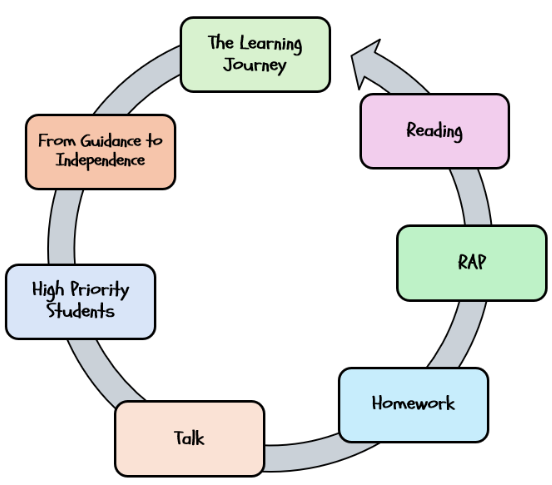Curriculum and Teaching
Our Curriculum and Teaching at Redhill School
‘Walk our school and this is what you will see…’
Our Curriculum at Redhill School
At Redhill School, our curriculum is the foundation of everything we do. It is thoughtfully designed to provide a coherent, rigorous, and inclusive educational experience that equips all pupils with the knowledge, skills, and values they need to succeed academically and personally.
A Curriculum with Clear Vision and Purpose
Our curriculum sets out a clear vision for the knowledge, skills, and values pupils will acquire throughout their time with us. It encompasses the national curriculum within a broader, coherent framework that reflects our commitment to excellence, respect, honesty, and kindness.
We prioritise careful sequencing and progression, ensuring pupils master foundational concepts before moving on to more complex ideas. This approach builds confidence and deepens understanding by linking new learning to existing knowledge, helping pupils know more, remember more and do more.
Evidence-Informed Design and Adaptation
We believe a curriculum should be a living document, responsive to research and reflective practice. Our curriculum leaders and departments regularly review and adapt schemes of work based on:
· Research evidence, including recommendations from the Education Endowment Foundation (EEF) on metacognition and self-regulated learning
· Feedback from staff and pupils through departmental meetings and professional dialogue
· Monitoring of pupil progress and engagement to ensure all learners, including disadvantaged pupils, thrive
Building Secure Foundations Through Regular Checks and Live Feedback
A key part of our curriculum approach is regularly checking pupils’ understanding to ensure they have securely grasped essential knowledge before moving on. Teachers use live feedback and formative assessment strategies to identify and close gaps swiftly, preventing pupils from building on insecure foundations.
This ongoing assessment allows teachers to:
· Provide timely, targeted guidance that supports pupils in mastering key concepts
· Adjust the pace and challenge of lessons to meet pupils’ readiness
· Support pupils in moving from guided learning to confident independence
· Ensure that all pupils, especially those who are disadvantaged or have additional needs, keep up and succeed
By embedding these practises, we foster a classroom culture where pupils are supported to learn deeply, reflect on their progress, and develop resilience.
Developing Pupils’ Metacognition and Independent Learning
Aligned with EEF recommendations, our curriculum explicitly incorporates metacognitive strategies that teach pupils how to plan, monitor, and evaluate their own learning. This empowers pupils to become self-regulated learners who understand their strengths and areas for growth.
Teachers model their thinking processes, scaffold challenging tasks, and promote purposeful classroom talk to develop pupils’ cognitive and metacognitive skills. Through this approach, pupils learn to organise and manage their learning independently, preparing them for lifelong success.
Homework at Redhill
At Redhill School, homework is a key part of our learning process. Pupils use their completed assignments during open-book learning checks, which helps them engage in scaffolded struggle time (purple pen). This approach builds their confidence and skills by encouraging them to tackle more challenging tasks.
Incorporating homework into these checks allows for targeted feedback. Teachers use this feedback to adapt their teaching, addressing specific gaps and misconceptions. This method accelerates pupil progress and promotes a deeper understanding of the material, ensuring every pupil is well-prepared to succeed.
Supporting Our Teachers to Deliver Excellence
Our teachers use a comprehensive Teaching and Learning Toolkit to ensure that high-quality teaching and learning is consistently applied across all subjects and year groups.
This toolkit is rooted in evidence-based strategies, drawing on research from the Education Endowment Foundation (EEF) and other leading educational research. By integrating these proven methods into everyday practice, we aim to create a positive learning environment where all students have the opportunity to succeed.
The focus is on continuous improvement, ensuring that teaching methods are effective, inclusive, and tailored to meet the needs of all learners, providing them with the best possible foundation for academic and personal growth.
To maintain its effectiveness, we review the toolkit three times per year with each subject area. This allows us to quality assure, refine, and support consistent delivery of T&L strategies across the school.
This directly informs our staff CPDL, helping to identify areas for growth and ensuring that all staff are supported. By aligning our CPDL with the toolkit, we create a culture of ongoing professional growth that empowers teachers to adapt, refine, and strengthen their practice, ultimately benefiting our students' learning outcomes.












